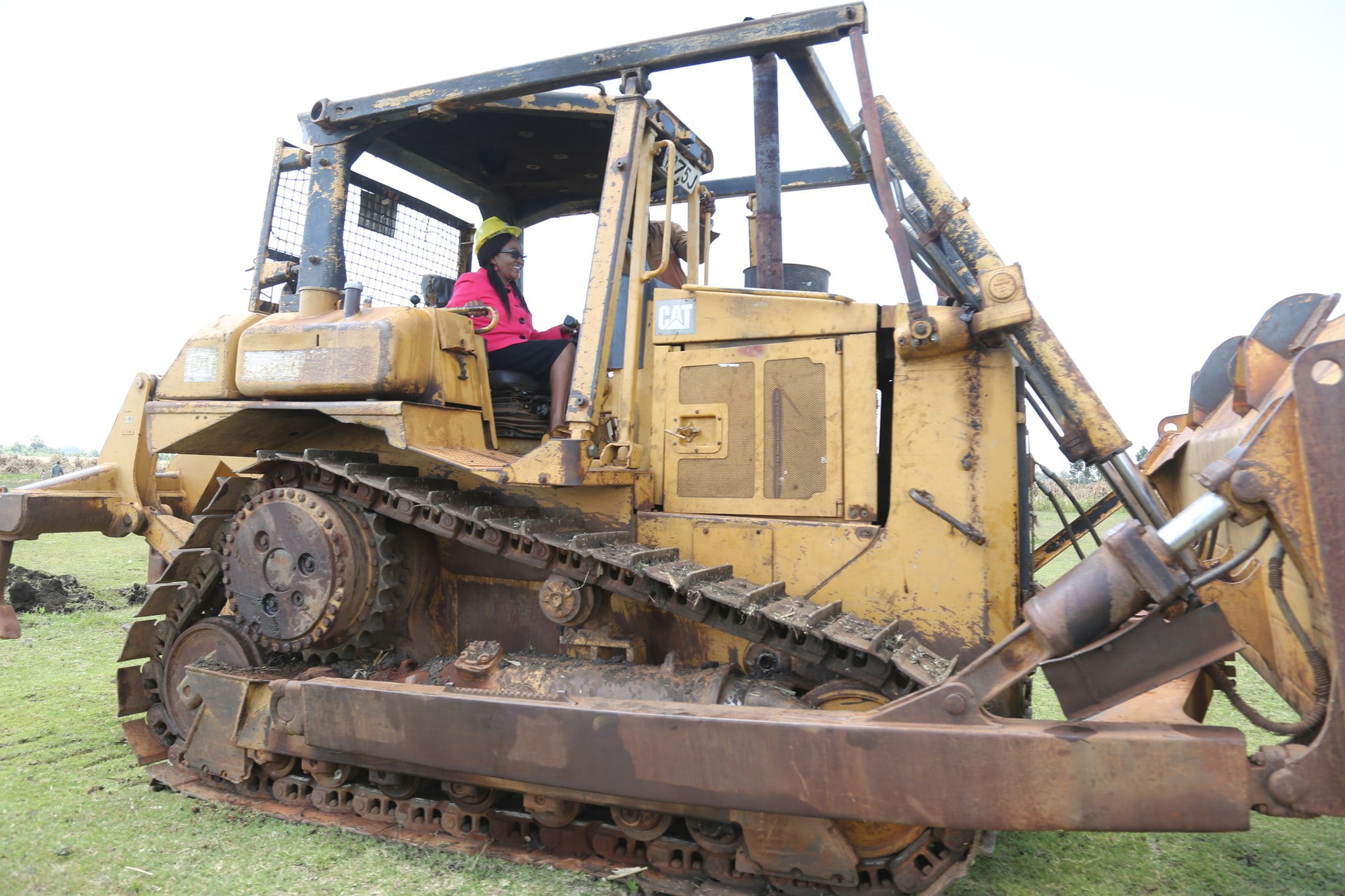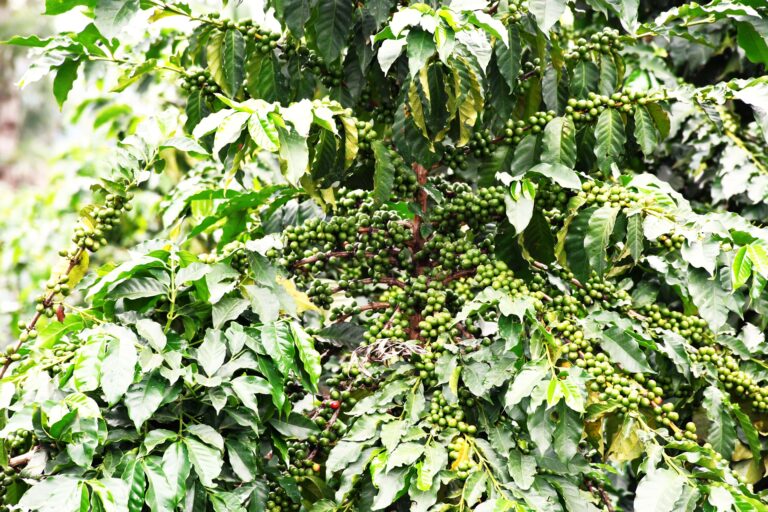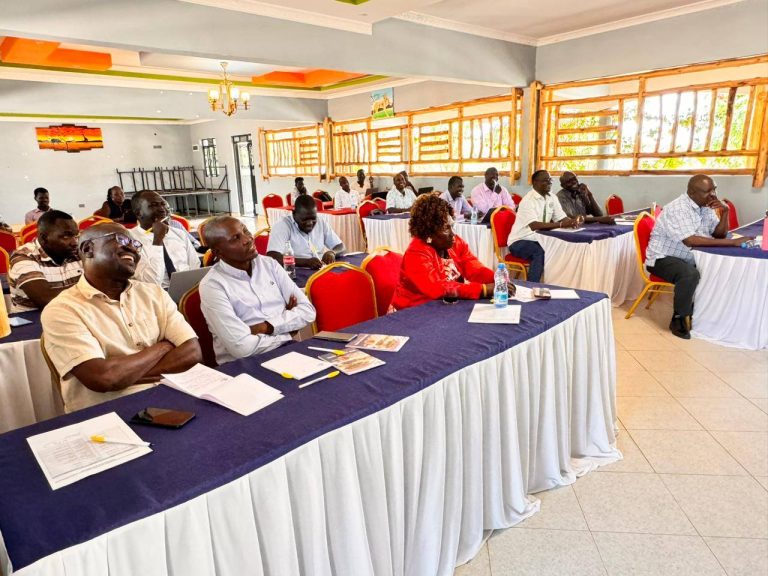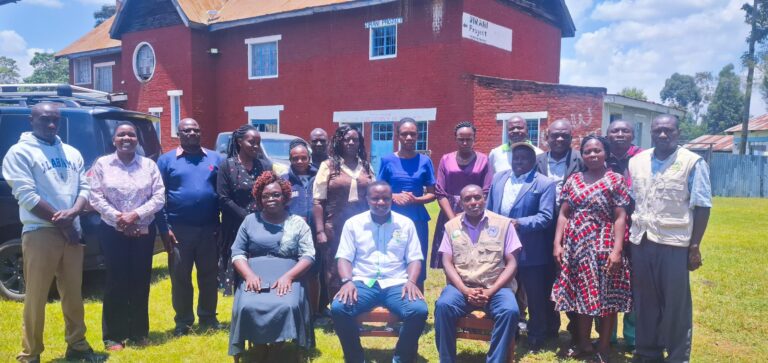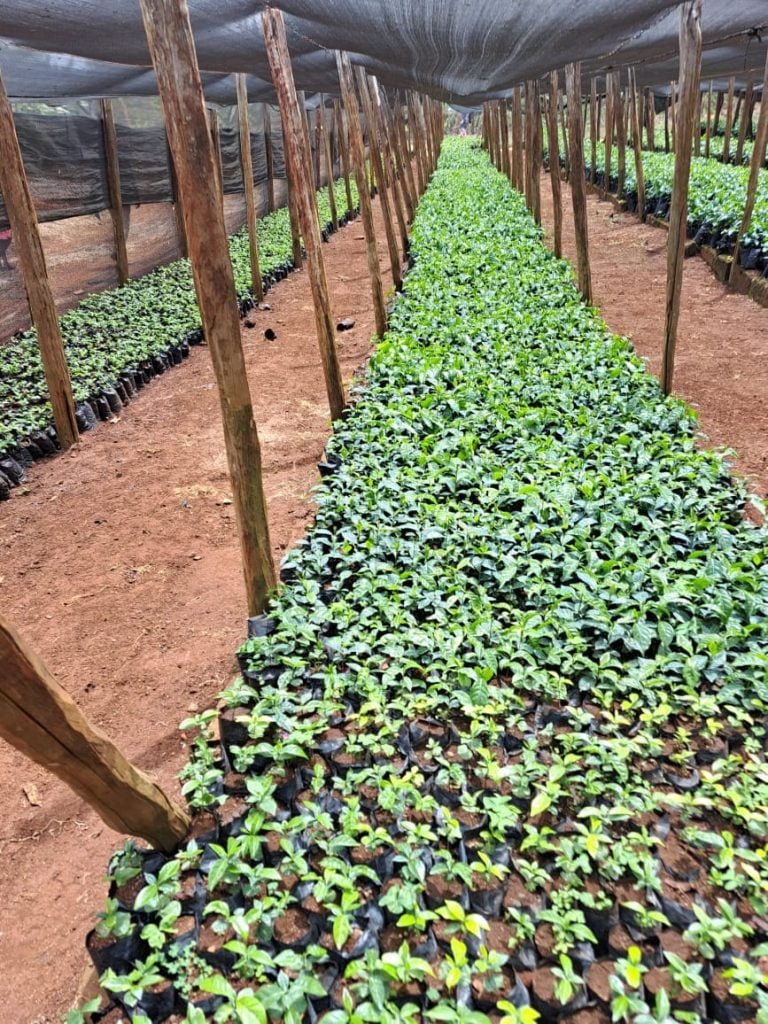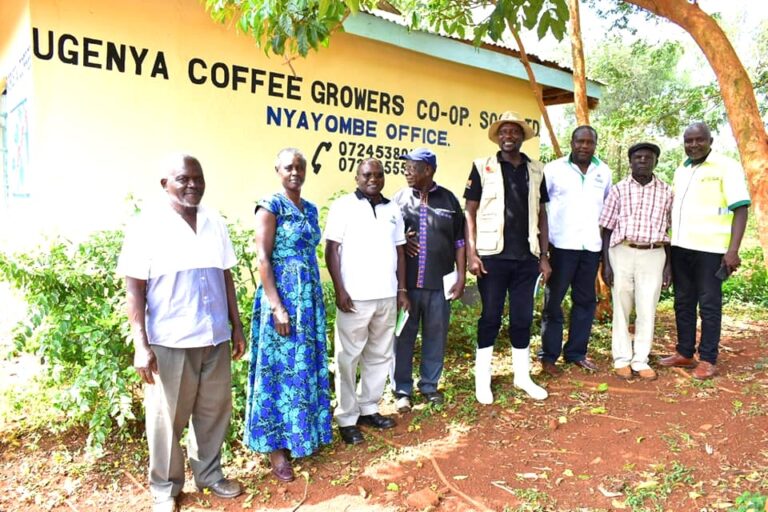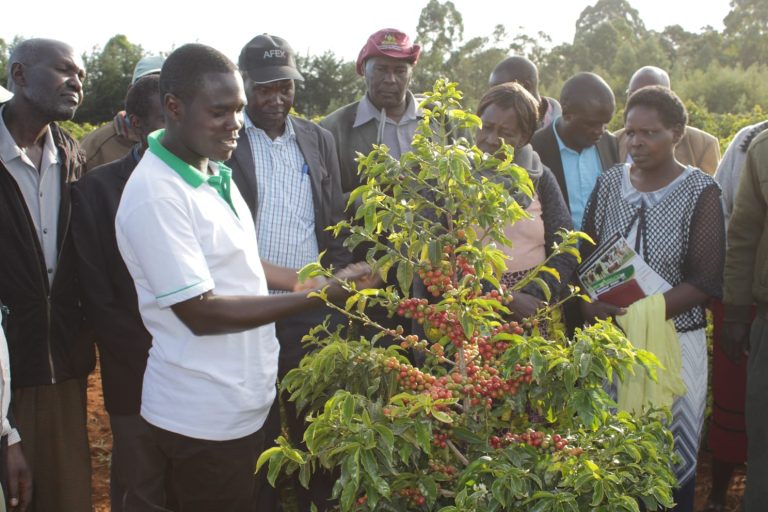Trans Nzoia County Government has commissioned the construction of Amani dam in Chepchoina Endebess sub-county which will cost the county Kshs. 20 million
Speaking during the groundbreaking event, Agriculture CEC Mary Nzomo said farmers will be connected to the irrigation system after completion to help boost their production and broaden their income base.
Nzomo said the construction of the dam is expected to hold more than 67,118 cubic meters of water with the target being to uplift the livelihood of more than 300 tomato farmers from Amani,Vamia and Njoro farms of Chepchoina ward.
This is in an attempt also to increase the cultivation of crops that can generate money with a relatively higher frequency as the crops can be grown up to two to three times a year with the target being crops that takes three months to maturity. She also encouraged the growing of tea, coffee, and tissue culture bananas saying the county will help farmers access ready markets.
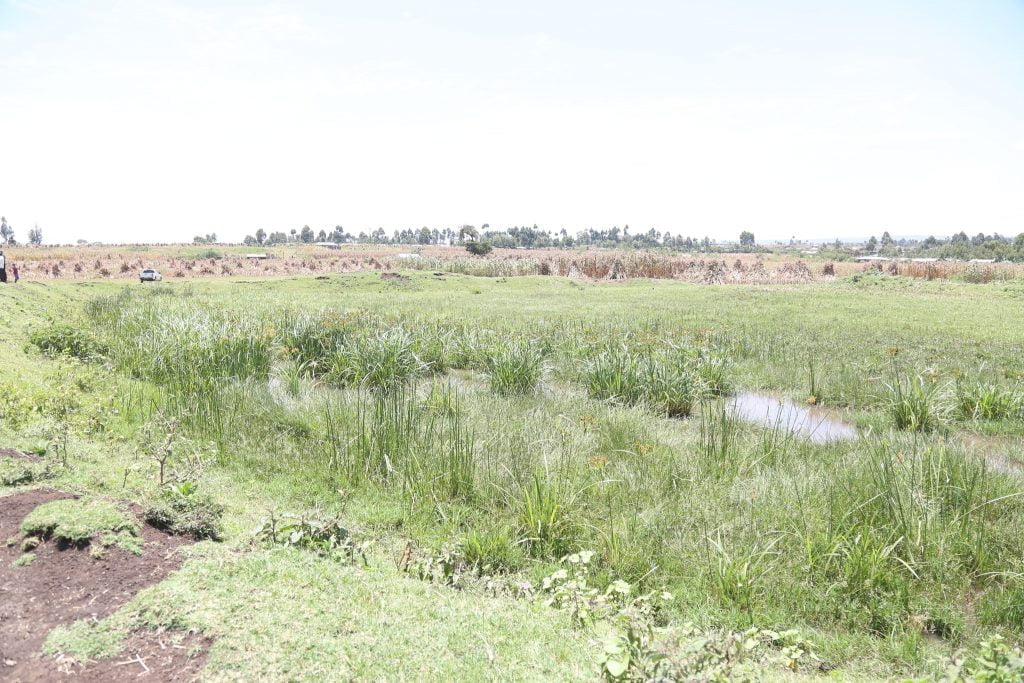
“The construction of the dam is aimed at boosting the county crops diversification program through irrigation of tomatoes and other horticultural crops including the banana value chain that is being promoted by the National Agricultural and Rural Inclusive Growth Project (NARIGP) program in the 20 wards of the County. Our farmers have been entirely dependent on maize farming which we hope will help them diversify. We expect the contractor to hand over the site in three months’ time” she added.
The CEC also added that through NARIGP, 395 farms which are equivalent to 264.4acres have been rehabilitated and conserved. Through the initiative, 4,000 avocado seedlings, 11,850 Goreville seedlings and 4000 Bamboo seedlings were planted along waterways. 60 youths from the local community were identified and engaged in soil excavation works where they earned Kshs 1.8 million.
“The dam will have a number of draw pipes that will demarcate the water as follows; community water point where residents will be getting their water for domestic use, cattle water point that will have troughs, there will also be pipes for irrigation. This will help us reduce interference of irrigation systems” opined the CEC


